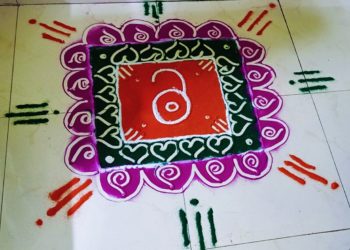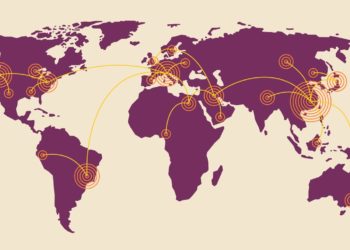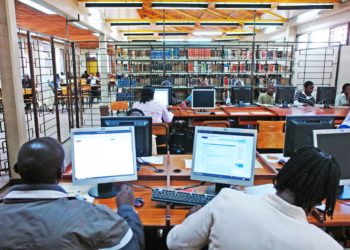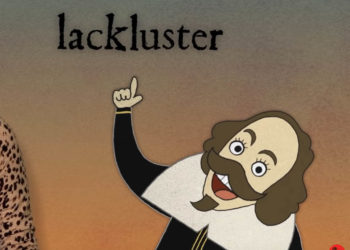Editor’s Note: Today’s post is by Daniela Saderi, Joy Owango, Aurelia Munene, Wangari Joyce Ngugi, Johanssen Obanda, and Johanna Havemann. Daniela is the Co-Founder and Director of PREreview, an open project with the mission to bring more equity and transparency to the evaluation of research content, giving systematically excluded researchers better ways to find, train, and contribute to peer review. Joy is the Founding Director of the Training Centre in Communication (TCC Africa) an award winning Trust registered in Kenya set up in 2006 and is the first African-based training center to teach effective communication skills to scientists. Aurelia is a social science researcher and founder of Eider Africa, an organization committed to co-creating research environments where emerging researchers in Africa can take leadership in driving responsible knowledge production and utilization in the continent. She is also the Executive Director of Nascent Research and Development Organization. Wangari J. Ngugi is a Consultant Psychologist and Research Mentor. She is the Lead Research Mentor at Eider Africa, with a Certificate in Research Mentorship, where she is involved in the Design Team curating Research Mentorship programs. Johanssen is a Social Innovator who works with AfricArXiv to build the organization’s scholarly community in Africa. Johanna is a trainer and consultant in [Open] Science Communication and [digital] Science Project Management. Her work experience covers NGOs, a science startup and international institutions including the UN Environment Programme.
Originated and established in a western context over decades, research assessment and quality assurance are commonly achieved through a practice called “peer review”. Typically, one to three scholars of a research discipline similar to the one described in a manuscript submitted to a journal for publication assess research rigor based on their personal experience and informed by the standards established in their research field. Over the past couple of years, there has been an increased level of criticism around this approach, particularly its inherent biases, the often insufficient level of quality feedback, and the barriers it creates, making it more difficult for certain groups of researchers (see here, here and here). Dominant perceptions about scholarly research capacity in Africa often begin from a narrative of deficiency, leading to approaches that favor western ways of knowledge production and top-down approaches to capacity support that displaces contextualized knowledge and co-creation processes, including peer review and publication.
To revert that effect and engage African scholars into discussion of research output from African colleagues and non-African scholars studying topics of region-specific relevance, we (the representatives of four community-driven organizations (AfricArXiv, Eider Africa, TCC Africa, and PREreview) have developed a pilot series of community peer review events to enable equitable practices of research evaluation and review.

Sourcing from both the expertise and experience in our respective community services (research mentorship, capacity building, and training in scholarly reading, writing and publishing), we identified the shared need to provide opportunities to African scholars to engage in debate-style learning, access horizontal peer-to-peer mentorship, and encourage individual and collective reflection and critical assessment of research output relevant to the African scholarly context at large. In doing so, we set the foundation for a long-lasting partnership to foster capacity building within the African research community.
The resulting peer review workshop series was held in three consecutive sessions on April 29, May 14, and May 27, 2021 with three main goals:
- Foster an open and inclusive approach to peer review on research manuscripts (preprints and post-prints) that centers kindness, constructive feedback, and promotes collaboration.
- Highlight preprints authored by African scholars or covering African-relevant content and provide an opportunity for the authors to receive constructive feedback from the events’ participants.
- Create a safe space for reflection around issues of scholarly knowledge decolonization, biased academic environments, open scholarship tools and practices, and other topics that are relevant and may emerge during these dynamic group discussions.
For each of the three sessions, the organizing team selected a research manuscript (preprint or postprint) from the decentralized and community-led preprint portal for African research output AfricArXiv. Preprints were selected to make visible African authorship and to demonstrate to participants the value of collaborative peer review for the authors. The chosen preprints were:
Session 1: Mwangi, K., Mainye, B., Ouso, D., Kevin, E., Muraya, A., Kamonde, C., … Kibet, C. K. (2021, February 18). Open Science in Kenya: Where are we? https://doi.org/10.31730/osf.io/mgkw3
Session 2: Azouaghe, S., Adetula, A., Forscher, P. S., Basnight-Brown, D., Ouherrou, N., Charyate, A., & IJzerman, H. (2020, May 13). Psychology and open science in Africa: Why is it needed and how can we implement it? https://doi.org/10.31730/osf.io/ke7ub
Session 3: Athreya, S., & Ackermann, R. R. (2018, August 18). Colonialism and narratives of human origins in Asia and Africa. https://doi.org/10.31730/osf.io/jtkn2
Equitable and inclusive access to participation
Considering affordable and equitable access to each session in a pan-African context, we designed the event series to be held on the teleconferencing platform of Zoom and live-streamed on Facebook. This would allow participation even from mobile devices, with reasonable reach across the continent and beyond major cities with stable enough internet connectivity. There was also an optional closed Facebook group and WhatsApp group to handle any technical troubleshooting and maximize members’ familiarization and extended community engagement.
During the call, facilitators guided participants through an interactive discussion following a collaborative notes document that contained participation guidelines, information about the workshop and hosts, as well as space for all participants to collaboratively provide answers to questions designed to capture the essence of the preprint discussed. Here is an example of such a document from the last workshop, with participants’ personalized information excluded for confidentiality purposes.
Throughout the live-event series, participants worked together on providing constructive feedback on the manuscripts presented by directly writing in the collaborative document, in the chat, and/or vocalizing their thoughts, allowing for inclusive participation that accommodated multiple styles of communication.
During each event, at least one author of the manuscripts presented joined the discussion. After providing a brief introduction to the work, they were asked to remain silent until the end of the event, unless directly asked a question for better comprehension of the content. This allowed participants to engage in a constructive dialogue and authors to have the opportunity to gather valuable feedback.
In addition to providing feedback on the preprint, the workshop offered an opportunity to reflect on barriers to participation in peer review rooted in colonialism, white supremacy culture, patriarchal systems and the resultant resigned or hesitant attitudes by some African scholars to engage in scholarly work, which dominate scholarship today. We held conversations that covered cultural influence in peer review, decolonization of academia, and the importance of open access in supporting African researchers and its effects on the visibility of African research.
For the last two events, we provided written translations of the preprints and the workshop materials in the main African Union integration languages, namely, French, Arabic and English. Additionally, we provided Kenyan Sign Language live interpretation for Deaf participants.
Last but not least, for the second workshop event we had special guests from the Jamii Asilia Centre, Carson Kiburo and Jacque Kandagor, who provided invaluable insights to the discussion in the context of their work with Indigenous communities, as well as live French translation of the whole event.
Who participated?
The workshop was open to African Scientists and Scholars based in Africa or based outside of the continent, and non-African Scientists and Scholars working on African-relevant topics across research disciplines.
We had a total of 647 registered participants, with Kenya, Nigeria, and Ghana being the most represented regions. Of these registered participants, 50% were Doctoral Students or Doctorate holders, 20% were Bachelor’s or Master’s Students, 13% were Principal Investigators, 11% were Government Employees, 10% were Research Assistants/Technicians, and 6% were Postdoctoral Fellows. Additionally, 49% were at the early-career level (<5 years of research practice), 30% were at the mid-career level (5-10 years) and 21% were at established career level (>10 years).
Attendance reached maximum Zoom capacity (100 participants) in the first and second workshops. For those who couldn’t join Zoom, we live-streamed on Facebook and encouraged all participants to work collaboratively and in real time on a shared document.
What comes next?
This event series was the beginning of what we hope will be fruitful and long-lasting collaboration between these four organizations.
Short-term goals include working together to leverage existing peer review training and mentorship programs and resources developed by these partners and others to provide more engagement and training opportunities to the African research community.
We do not want to stop there. We know that real change will not happen until those in positions of power and leadership are the people who can lead that change from within the communities to which they belong.
For this to happen we need to have more representation of African researchers across editorial boards of international publishers, expand the peer review pool to intentionally include the expertise present in the continent, and rethink policy, governance structure, and funding strategy from an equity perspective where more support is given to communities who have been traditionally excluded from academia for centuries.
What do we need?
To sustain this work and more to come from this fruitful partnership, we need funding and opportunities to affect change. If you are interested in funding us or working with us, please contact us at info@tcc-africa.org.
The peer review workshop series is archived and citable as:
Owango, J., Munene, A., Ngugi, J., Havemann, J., Obanda, J., & Saderi, D. (2021). Best Practices and Innovative Approaches to Peer Review [incl. workshop recordings]. AfricArXiv. https://doi.org/10.21428/3b2160cd.c3faf764
Acknowledgements
The authors of this blog would like to thank the Wellcome Trust for the financial support of the design sprint and the workshop series via a PREreview Diversity & Inclusion Enrichment grant.
We thank N’kadziri Idd for Kenyan Sign Language interpretation together with one of our organizers, Wangari Ngugi, as well as Nabil Ksibi for providing Arabic translations of the workshops’ content.
We would also like to thank Carson Kiburo and Jacque Kandagor from the Jamii Asilia Centre for joining us as special guests.
Last but not least, we thank the preprint authors and the workshops’ participants for joining us in this event series. We hope to engage with you all soon.
About the Host Organizations
AfricArXiv is a community-led digital archive for African research, working towards building an African-owned open scholarly repository; a knowledge commons of African scholarly works to catalyze the African Renaissance. We partner with established scholarly repository services to provide a platform for African scientists of any discipline to present their research findings and connect with other researchers on the African continent and globally.
Eider Africa is an organization that conducts research, co-designs and implements collaboratively offline and online research mentorship programs for scholars in Africa. Our goal is to improve research training, create supportive spaces for African scholars and promote African leadership in production and use of knowledge. We believe in peer-to-peer learning, learning research by practice, caring for the whole researcher, and lifelong learning. We have grown a vibrant community of researchers in our research journal clubs and work with university lecturers to develop transformative inclusive research training and mentorship.
The Training Centre in Communication (TCC) Africa is the first African-based training centre to teach effective communication skills to scientists. TCC Africa is an award winning Trust, established as a non-profit entity in 2006 and is registered in Kenya. TCC Africa provides capacity support in improving researchers output and visibility through training in scholarly and science communication.
PREreview is an open project fiscally sponsored by the non-profit organization Code for Science and Society. Our mission is to bring more equity and transparency to the scholarly peer review process. We design and develop open source infrastructure to enable constructive feedback to preprints, we run peer review mentoring and training programs, and we partner with like-minded organizations to organize events providing opportunities for researchers to create meaningful collaborations and connections defeating cultural and geographical barriers.
Discussion
2 Thoughts on "Guest Post — Best Practices and Innovative Approaches to Peer Review in Africa"
Very interesting and helpful for African institutions to create powerful teams and improve research skills.
It is time to break barriers in knowledge and science dissemination
I am excited to learn of this initiative! The Leonardo journal commits to decolonization of our publication. I would like to publicize two specific calls we have issued toward this work. Please share these with any individuals or organizations who can help our reach.
https://www.leonardo.info/opportunity/join-the-leonardo-peer-review-panel
https://www.leonardo.info/opportunity/open-call-for-special-sections



